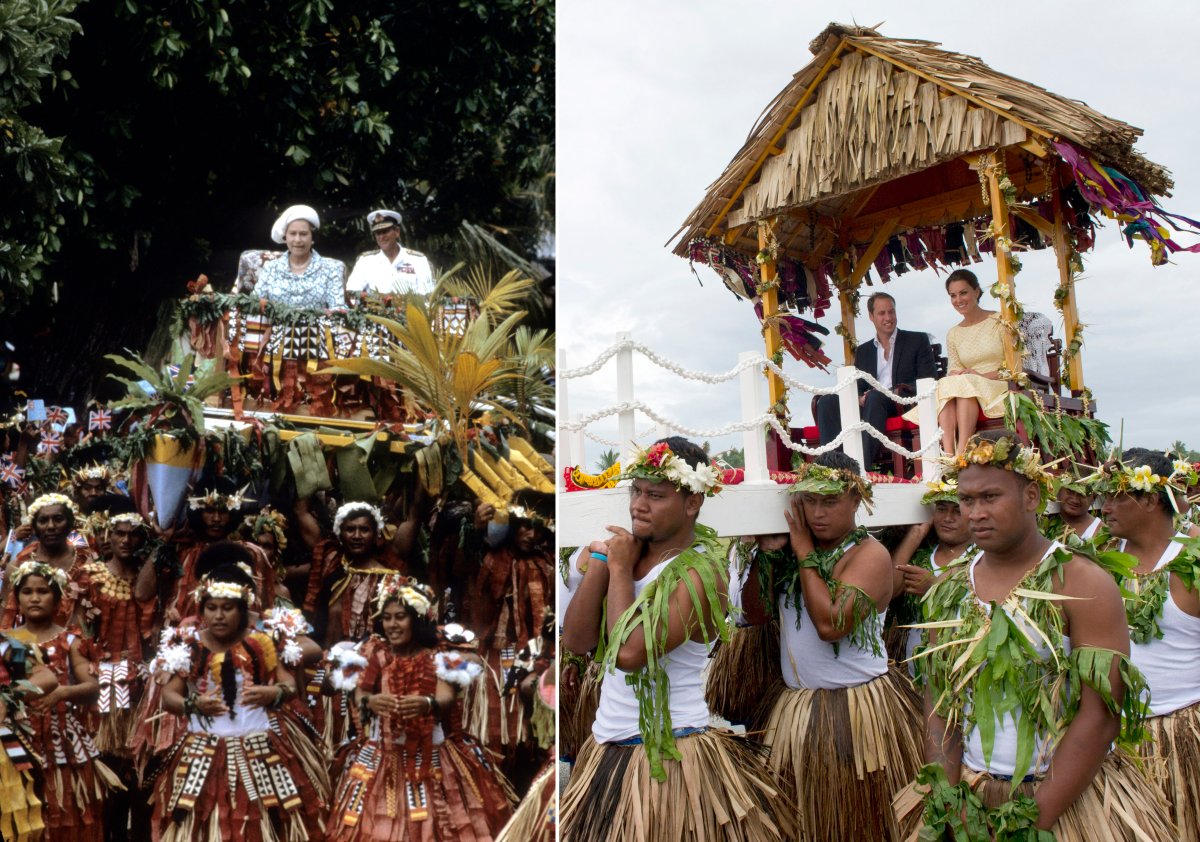TORONTO — In the line up of folks awaiting their turn on the Royal throne, firstborns reign over their siblings.

Succession to the throne is ruled by primogeniture — a system that selects the eldest child as first in line to inherit the Crown.
The current first heir in Prince Charles, followed by his firstborn son, Prince William. Next up to bat, is the Royal Baby followed by the fourth runner-up Prince Harry.
But if Liz, Chuck and Willy, all die in a tragic water skiing accident before RB turns 18, Harry would keep the royal seat warm as regent until he or she comes of age.
The British adopted a modern variation of this rule in 2011, allowing any firstborn to rule the monarchy, not just the firstborn son. This ended centuries during which male heirs had precedence over elder sisters.
However, this only affects royals born after 2011, meaning Queen Elizabeth’s II’s younger sons, Prince Andrew and Prince Edward, still come before their older sister Anne, Princess Royal.
While other monarchies have already established an equal law of succession — including Norway, Netherlands, Belgium, Denmark, Sweden and Luxemburg — most of the British commonwealth haven’t passed legislation in their countries yet, which would bring the law into full effect.
The Succession to the Crown Act must be accepted in each of the 15 Commonwealth countries where the Queen is head of state.
Just three countries —Canada, St. Kitts and Nevis, St. Vincent and the Grenadines– have approved the British law. That leaves Australia, New Zealand, Jamaica, Antigua and Barbuda, Belize, Papua New Guinea, Barbados, Tuvalu, Grenada, Solomon Islands, St Lucia, and the Bahamas which haven’t gotten around to it.
“Some of them are really, really small,” Robert Hazell, the director of the constitution unit at University College London told the Guardian. “Tuvalu, population around 9,000, doesn’t have a lot of capacity and when asked to change their law, they probably have got other urgent matters, like whether they’re disappearing under the Pacific because of global warming.”
If the commonwealth doesn’t give the British law royal assent, it is technically possibly a younger brother could become their king, while a daughter reigns over England.
This won’t be an issue unless RB is a girl and a second child is a boy. Nonetheless, to avoid having a divided line of succession – with Antigua, for example hailing the Rebel King of Sunny Beaches – the British government has been cracking down on other to try and bring them in line.
While Duchess Kate’s delivery date approached, the government, fretting over the delay, sent Lord Wallace of Tankerness, a member of the House of Lords, on a tour of some of the realms in May in order to drum up support for the new law and advise them on how to bring in the change.
Canada gave assent to the law, but is now facing a legal battle from Quebec university professors and constitutional experts seeking to overturn the federal government’s approval of changes to the Succession Act, arguing it’s unconstitutional.
On Monday, the Quebec attorney general joined the group challenging Ottawa, saying the change requires a formal amendment to the constitution and approval from each provincial legislature.
The challenge also claims that the Feds cannot agree to British laws that discriminate on the basis of religion, since Catholics cannot ascend to the throne.
On Monday, Prime Minister David Cameron insisted that if the new royal is a girl, she will reign over the whole Commonwealth. Cameron said the agreement reached in 2011 between the nations was binding.
“I can’t claim any role in this one, except for as Prime Minister I have one small thing, well it’s a big thing actually which is to get all of the heads of the realms over which our Queen is Queen to agree that whatever the sex of the baby that Will and Kate have, if it’s a girl it will be our Queen,” Cameron told BBC Radio 4 Woman’s Hour.
“Everyone has agreed. They’ve agreed that even if the legislation hasn’t gone through their parliament it will retrospectively apply to the child, so it’s pretty much a done deal.”
The legislation also removed a ban on monarchs marrying Catholics, but the ban on being a Catholic monarch remains firmly in place.
The new line of succession
1. Prince Charles
2. Prince William
3. Royal Baby
4. Prince Harry
5. Prince Andrew
6. Princess Beatrice
7. Princess Eugenie
8. Prince Edward
9. Viscount Severn
10. Lady Louise Mountbatten-Windsor
11. Princess Anne
12. Peter Phillips
13. Savannah Phillips
14. Isla Phillips
15. Zara Philips




Comments